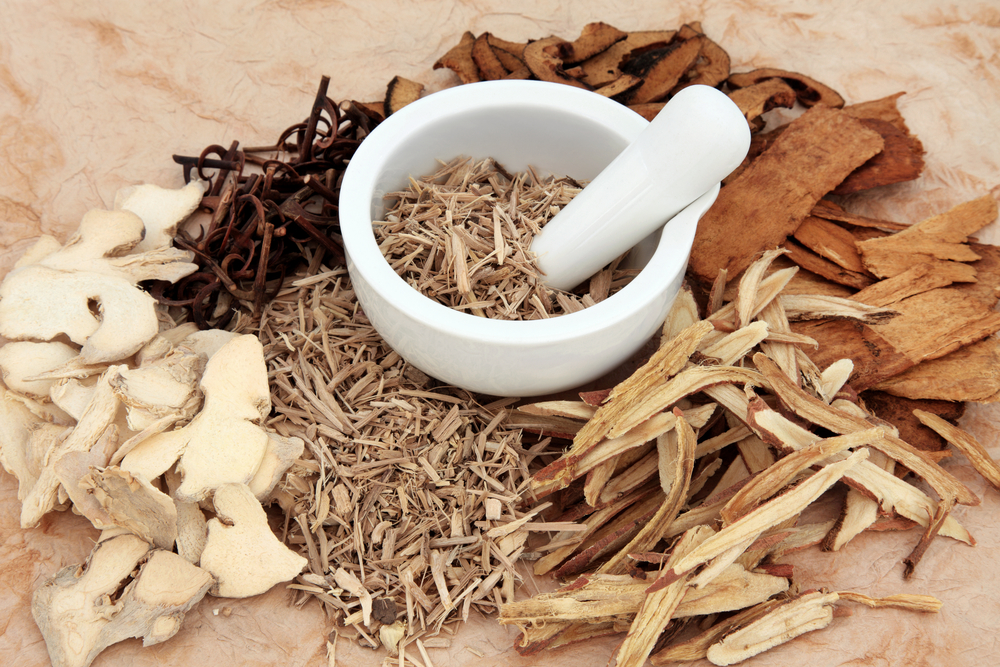Panax ginseng supplementation could prevent doxorubicin-induced cardiac toxicity in patients with non-metastatic breast cancer
 Doxorubicin is a common chemotherapy drug for treating breast cancer. It kills cancer cells, but meanwhile damages some normal cells and leads to side effects. Cardiac toxicity is a leading adverse reaction among side effects of doxorubicin.
Doxorubicin is a common chemotherapy drug for treating breast cancer. It kills cancer cells, but meanwhile damages some normal cells and leads to side effects. Cardiac toxicity is a leading adverse reaction among side effects of doxorubicin.
The use of doxorubicin sometimes can lead to apoptosis, necrosis or autophagy of cardiomyocytes and finally trigger cardiac toxicity. Having this side effect, patients can undergo chest pain, dizziness, fatigue, heart rhythm fluctuation, shortness of breath, etc.
Panax ginseng is a traditional Chinese medicine herb and it has a variety of medicinal properties and its role in treating cardiovascular diseases are widely studied and prove to be a promising therapy.
The predominant medicinal ingredients of Panax ginseng are known as ginsenosides. Ginsenosides have been widely studied and many studies indicate that ginsenosides have cardiovascular protection against chemotherapy-induced cardiac dysfunction.
Researchers have shown great interest in taking Panax ginseng as an adjuvant therapy together with chemotherapy to reduce side effects, because Panax ginseng itself is found to exert strong toxicity on cancer cells but bring limited damages to normal cells.
A recent study found that Panax ginseng supplementation could reduce doxorubicin-induced cardiac dysfunction among cancer patients with non-metastatic breast cancer.
The study was conducted by researchers at Shiraz University of Medical Sciences, Shiraz, Iran. It is a randomized, double-blind, placebo-controlled clinical trial, including 30 patients for final analysis, 15 in the intervention group given Panax ginseng (1g/day) and 15 in the control group given placebo. All participants received standard chemotherapy. The highlights of the study are:
- Cardiac toxicity is defined as a 10% reduction in left ventricular ejection fraction (LVEF) <53%. All participants had a normal LVEF≥ 50% when included for the clinical trial.
- At the end of the fourth cycle of chemotherapy, LVEF was dropped from 62.0 ± 0.9% to 60.7 ± 1.0% in the intervention group and from 63.27 ± 1.1% to 58.0 ± 1.3% in the placebo group, respectively.
- At the end of the eighth cycle of chemotherapy, the mean LVEF was increased by 0.8 ± 1.3% from baseline in the intervention group, while the placebo group experienced a reduction of -7.3 ± 1.4%.
- None of patients in the Panax ginseng group experience doxorubicin-related cardiac dysfunction, while one patient and five patients in the placebo group developed doxorubicin-related cardiac dysfunction at the fourth cycle and the eight cycle, respectively.
The long-term intake of Panax ginseng increased the mean LVEF, suggesting that Panax ginseng supplementation is an effective treatment for doxorubicin-induced early cardiac dysfunction and early decline in LVEF among patients with non-metastatic breast cancer.
Early in this year, Iraqi researchers conducted animal experiments to explore the effects of Panax ginseng on reducing the cardiotoxicity of doxorubicin. The study reveals that Panax ginseng inhibits reactive oxygen species and inflammatory and apoptotic pathways to prevent doxorubicin-induced cardiac toxicity.
Reference:
Hamidian M, Foroughinia F, Haghighat S, Attar A, Haem E. Protective effects of Panax ginseng against doxorubicin-induced cardiac toxicity in patients with non-metastatic breast cancer: A randomized, double-blind, placebo-controlled clinical trial. J Oncol Pharm Pract. 2022 Aug 17:10781552221118530. doi: 10.1177/10781552221118530. Epub ahead of print. PMID: 35975564.



Siberian ginseng grows in Russia and Asia and has a compound similar to ginsenosides called eleutherosides which optimizes your cardiovascular system, fights fatigue, and supports immunity